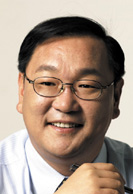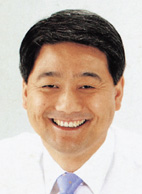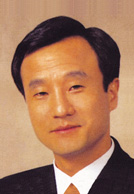Dealing with Energy Problems
- Four lawmakers report Korea should be a hub in N.E. Asia oil market




Four lawmakers belonging to the Parliamentary Policy Research Center released a report recently entitled, "In Research of New Alternative To Cope with Energy Problems." Reps. Kim Tae-nyon, Suh Kap-won, Lee Kwang-jae and Han Byong-do published a four-part report dealing with energy problems and its solution. The first part is on recommendations for the establishment of an international level oil exploration firm; The second part is on ideas to secure an advantage position in oil markets in Northeast Asia; The third part is on Siberian PNG project; The fourth part deals with recommendations for restructuring energy administrative systems.
The report warns that the international oil market is going through a structural change with high oil prices. Oil supply is being endangered by the instability in the Middle East and prolonged Iraqi situation. A rise in demand for energy in China added to a world-wide energy demand rise, causing oil prices to increase and touching off a limitless competition among major countries in the world to secure oil resources.
South Korea ranks 7th in the world in terms of oil consumption and 5th in oil imports. The country imported $38.3 billion worth of energy resources in 2002 with petroleum taking up 79.4 percent of the imports, followed by natural gas with 12.3 percent and coal 7.5 percent. Oil imports along last year amounted to $30.4 billion, hurting the nation's balance of trade and foreign exchange reserves. The country's dependence on the Middle East for oil stands at 77.5 percent, compared to 25.2 percent for the U.S., 10.5 percent for German and 88.7 percent for Japan.
Korea's energy self-sufficiency rate stands at 3 percent, compared to 77 percent for France, 22 percent for Germany, and 11.4 percent for Japan.
Many South Korean firms are engaged in the exploration of oil abroad, but only as investors, not directly participating in oil exploration activity and their stakes are not large enough at that. As such, they have not been able to acquire oil exploration technology and know-how. For the past 20 years, around 40 Korean firms have had the experience of having engaged in oil exploration, but many of them gave it up following the foreign exchange crisis in 1998. Only 18 of them still are in business, although only 9 of them actually have been actively engaged.
Korea should raise its overseas oil production rate to from 10 to 15 percent of total oil consumption by 2010 and to 15 to 30 percent by 2015 under a mid to long term oil resources development plan. The country consumes 2.2 million barrels of oil per day now, but it would be jumped to 2.6 million barrels per day in 2010.
An oil exploration firm should be able to pump up between 240,000 barrels per day and 400,000 barrels per day with a capacity to survey, develop and produce oil with the ability to analyze the economic feasibility of an oil well, fully able to take advantage of its global network.
The report also recommends that the government should take the lead to make the country a hub of Northeast Asian oil market, taking advantage of its geopolitical position and oil infrastructure and internationalize its domestic oil market.
At the same time, it should take care of the country's shortcomings as a non-OPEC country and build a foundation for stable energy supply and the economic development. The Korean peninsula is a gateway to Eurasian Continent and becomes a hub of the Northeast Asian economy with the confrontation between the divided Koreas settling down. The two Koreas reach an agreement to reconnect the severed railroads between them and link them to the railroads crisscrossing the Eurasian continent.
Korea would become a logistic center that connects the Pacific region and Eurasia by building an integrated transportation system for railroads, maritime shipping, commercial aviation and natural gas pipelines. nw
3Fl, 292-47, Shindang 6-dong, Chung-gu, Seoul, Korea 100-456
Tel : 82-2-2235-6114 / Fax : 82-2-2235-0799